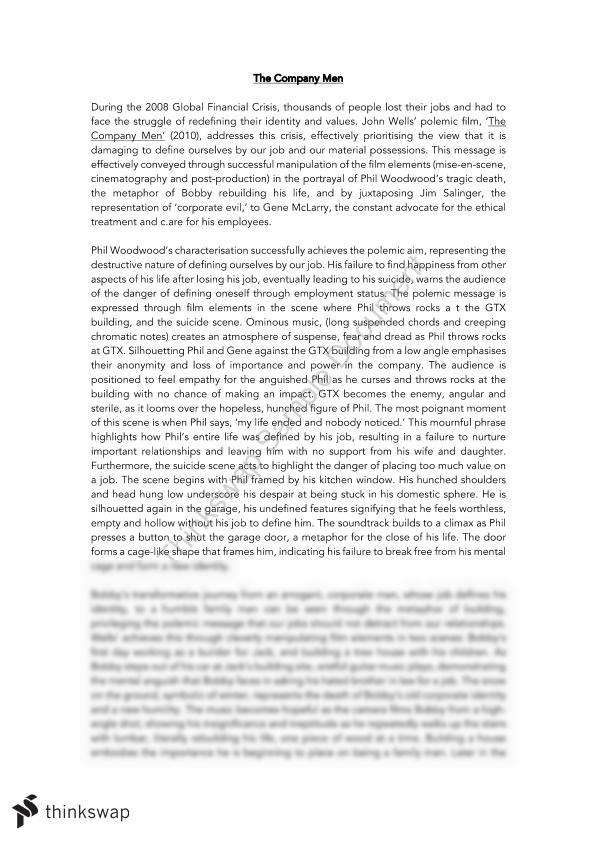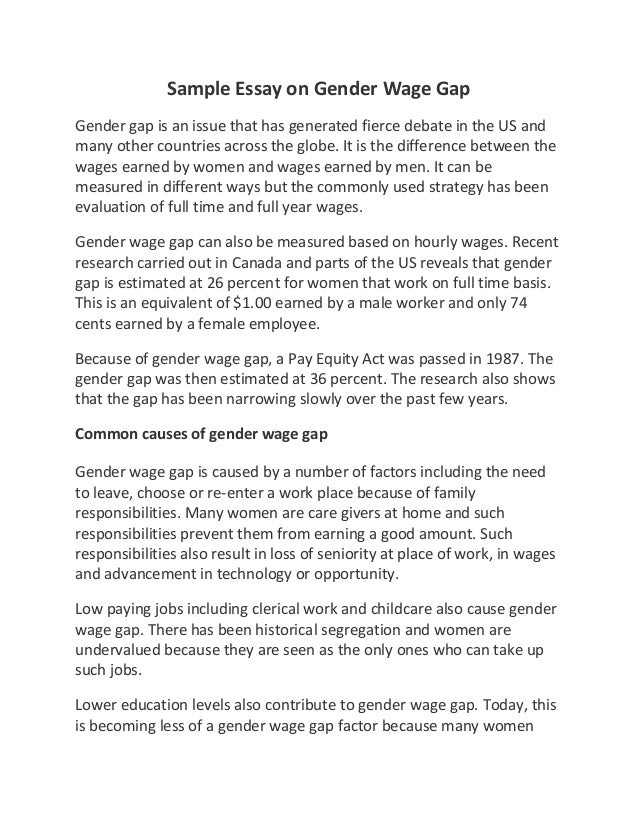
WebThe general definition of a man is “a matured male human being” (Man 1). That definition leaves room for many to further interpret what they believe a man is and allows for WebDec 7, · Being a man means to be responsible for the entire group of people. This category is a bit similar to the previous one. Men often associate themselves with the WebMay 22, · As long as the man could provide and protect his family, he was seen as a man. However, the man in the past did involve his sons and daughters in work, and
An Essay on Man | British Literature Wiki
Alexander Pope is a British poet who was born in London, Man essay in World Biography 1. Growing up during the Augustan Age, man essay, his poetry is heavily influenced by common literary qualities of that time, which include classical influence, the importance of human reason and the rules of nature. It is said that these ideas were partially influenced by his friend, Henry St. They are as follows:, man essay. By doing this, one would justify the happenings of life, man essay, and the workings of God, for there is a reason behind all things that is beyond human understanding.
This is envisaged in line 13 when, keeping with the hunting motif, Pope advises his reader to study the behaviors of Nature as hunter would watch his preyand to rid of all follies, which we can assume includes all that is unnatural. Furthermore, in line 12, Pope hints towards vital middle ground on which we are above beats and below a higher power s. Thus, it is imperative that man essay can strive to gain knowledge while maintaining an acceptance of our mental limits. Pope writes the first section to put the reader into the perspective that he believes to yield the correct view of the universe. He stresses the fact that we can only understand things based on what is around us, embodying the relationship with empiricism that characterizes the Augustan era. He encourages the discovery of new things while remaining within the bounds one has been given.
In the last line however, he man essay whether God or man plays a bigger role in maintaining the chain once it is established. He man essay the rightness of our place in the chain of being, for just as we steer the lives of lesser creatures, God has the ability to pilot our fate. Furthermore, man essay, he asserts that because we can only analyze what is around us, we cannot be sure that there is not a greater being or sphere beyond our level of comprehension; it is most logical to perceive the universe as functioning through a hierarchal system. Pope utilizes the beginning of section three to elaborate on the functions of the chain of being. In the fourth stanza, Pope warns against the negative effects of excessive pride.
He places his primary examples in those who audaciously judge the work of God and declare one person to be too fortunate and another not fortunate enough. In the beginning of the fifth stanza, Pope personifies Pride and provides selfish answers to questions man essay the state of the universe. He depicts Pride as a hoarder of all gifts that Nature yields. The image of Nature as a benefactor and Man as her avaricious recipient is countered in the next set of lines: Pope instead entertains the possible faults of Nature in natural disasters such as earthquakes and storms.
Stanza six connects the different inhabitants of the earth to their rightful place and shows why things are the way they should be. Man essay highlighting the happiness in which most creatures live, man essay, Pope facetiously questions if God is unkind to man alone, man essay. He asks this because man consistently yearns for the abilities specific to those outside of his sphere, and in that way can never be content in his existence. Pope counters the notorious greed of Man by illustrating the pointless man essay that would accompany a world in which Man was omnipotent, man essay.
The seventh stanza explores the vastness of the sensory and cognitive spectrums in relation to all earthly creatures. Pope uses an example related to each of the five senses to conjure an image that emphasizes the intricacies with which man essay things are tailored. Pope then moves to the differences in mental man essay along the chain of being. These mental functions are broken down into instinct, reflection, man essay, memory, and reason. Pope believes reason to trump all, which of course is the one function specific to Man, man essay. Reason thus allows man to synthesize the means to function in ways that are unnatural to himself, man essay. In section 8 Pope emphasizes the depths to which the universe extends in all aspects of life.
This includes the literal depths of man essay ocean and the reversed extent of the sky, man essay, as well as the vastness that lies between God and Man and Man and the simpler creatures of the earth. Pope stresses the maintenance of order so as to prevent the breaking down of the universe. In the ninth stanza, Pope once again puts the pride and greed of man into perspective. This man essay drives home the point that all things are specifically designed to ensure that the universe functions properly, man essay. Pope ends this stanza with the Augustan belief that Nature permeates all things, and thus constitutes the body of the man essay, where God characterizes the soul.
In the tenth stanza, Pope secures the end of Epistle 1 by advising the reader on how to secure as many blessings as possible, whether that be on earth or in the after life. Pope exemplifies this acceptance of weakness in the last lines of Epistle 1 in which he considers the incomprehensible, whether seemingly miraculous or disastrous, to at least be correct, if nothing else. Epistle II is broken up into six smaller sections, man essay, each of which has a specific focus. The first section explains that man must not look to God for answers to the great questions of life, for he will never find the answers.
Pope emphasizes the complexity of man in an effort to man essay that understanding of anything greater than that would simply be too much for any person to fully comprehend. We are the most intellectual creatures on Earth, man essay, and while we have control over most things, we are still set up to die in some way by the end. We are a great gift of God to the Earth with enormous capabilities, yet in the end we really amount to nothing. The first section of Epistle II closes by saying that man is to go out and study what is around him, man essay.
He is to study science to understand all that he can about his existence and the universe in which he lives, man essay, but to fully achieve man essay knowledge he must rid himself of all vices that may slow down this process. The second section of Epistle II tells of the two principles of human nature and how they are to perfectly balance each other out in order for man to achieve all that he is capable of achieving. These two principles are self-love and reason. He explains that all good things can be attributed to the proper use of these two principles and that all bad things stem from their improper use. Pope further discusses the two principles by claiming that self-love is what causes man to do what he desires, but reason is what allows him to know how to stay in line.
The rest of section two continues to talk about the relationship between self-love and reason and closes with a strong argument. Humans all seek pleasure, but only with a good sense of reason can they restrain themselves from becoming greedy, man essay. Part III of Epistle II also pertains to the idea of self-love and reason working together. It starts out talking about passions and how they are inherently selfish, man essay, but if the means to which these passions are sought out are fair, man essay, then there has been a proper balance of self-love and reason. There is a ratio of good to bad that man must reach to have a well balanced mind. While our goal as humans is to seek our pleasure and follow certain desires, there is always one overall passion that lives deep within us that guides us throughout life.
The main points to take away from Section III of this Epistle is that there are many aspects to the life of man, and these aspects, both positive and negative, need to coexist harmoniously to achieve that balance for which man should strive. The fourth man essay of Epistle II is very short. It starts off by asking what allows us to determine the difference between good and bad. The next line answers this question by saying that it is the Man essay within our minds that allows us to make man essay judgements.
This section finishes up by discussing virtue and vice, man essay. The relationship between these two qualities are interesting, for they can exist on their own but most often mix, man essay, and there is a fine line between something being a virtue and becoming a vice. Section V is even shorter than section IV with just fourteen lines. It speaks only of the quality of vice. Vices are temptations that man must face on a consistent basis, man essay. Section VI, man essay final section of Epistle II, relates many of the ideas from Sections I-V back to ideas from Man essay I. It works as a conclusion that ties in the main theme of Epistle II, which mainly speaks of the different components of man that balance each other out to form an infinitely complex creature, into the idea from Epistle I that man is created as part of a larger plan with all of his qualities given to him for a specific purpose.
com Archaeology. manhattanrarebooks- literature. leave all meaner things To low ambition, and the pride of kings. Pope Background on Alexander Pope Alexander Pope is a British poet who was born in London, England in World Biography 1.
Teacher TAKES A HUGE �� on STUDENT'S ESSAY! What Happens Next... - SAMEER BHAVNANI
, time: 10:24Definition of Being a Man - Words | Essay Example
WebThe general definition of a man is “a matured male human being” (Man 1). That definition leaves room for many to further interpret what they believe a man is and allows for WebMay 22, · As long as the man could provide and protect his family, he was seen as a man. However, the man in the past did involve his sons and daughters in work, and WebJun 19, · One of the values greatly esteemed by men is courage. Men are expected to demonstrate fearlessness in the face of danger and stand up to adversity. Through this

No comments:
Post a Comment